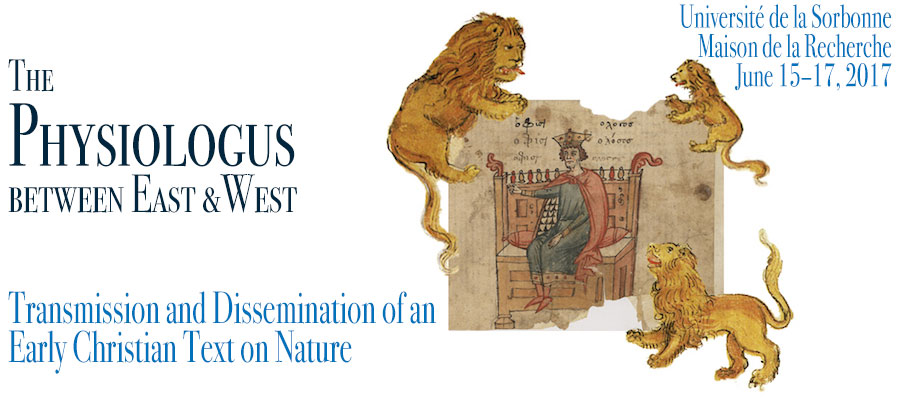The Physiologus between East and West: Transmission and Dissemination of an early Christian Text on Nature, Université de la Sorbonne – Maison de la Recherche, June 15–17, 2017
The Physiologus was once among the most widely read texts on nature in the world. Originally composed in Greek language during the second or third century AD, and based on antique sources, it was widely translated across East and West into all the major ancient and medieval vernacular languages. These included Arabic, Armenian, Coptic, Ethiopian, Georgian, Latin, Slavonic and Syriac, as well as early versions of French, German, Icelandic and English. Each language has its own complicated manuscript transmission and related indirect traditions. The history of the Physiologus can therefore only be understood by looking at the complete map of its diffusion. Yet many of the regional traditions of the Physiologus have not been studied since the end of the nineteenth century. The purpose of this conference is to bring together specialists of the Physiologus for each of those languages in order to lay down the foundations of a modern international dialogue about this influential and under-studied work. The Physiolosus forms an ideal case study for observing cultural variations in this wide area covered by the different versions.
